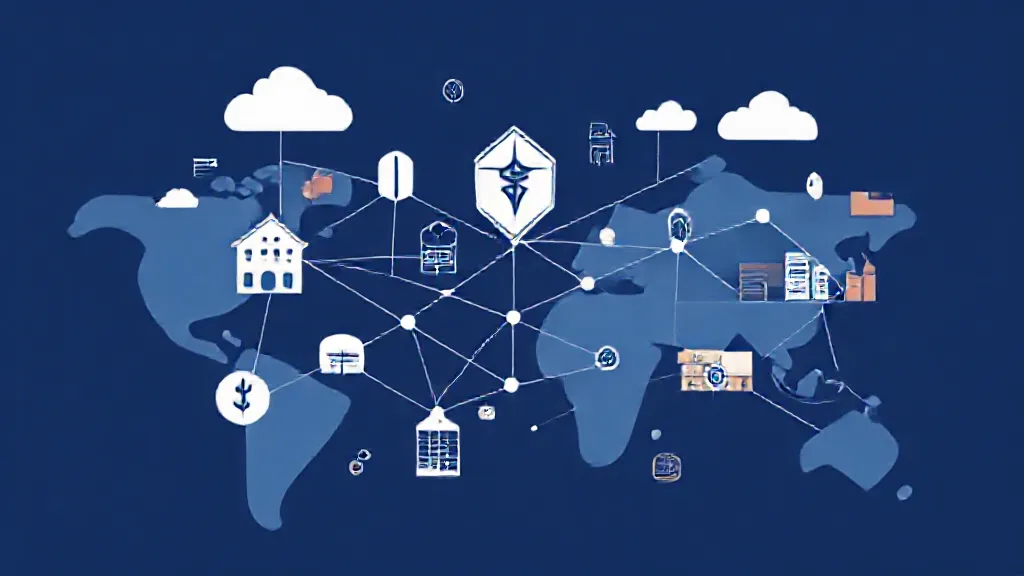Blockchain technology, initially conceived as the backbone of cryptocurrencies like Bitcoin, has evolved into a transformative force capable of revolutionizing various industries. Its decentralized nature, transparency, and security features present a unique solution to many challenges faced by traditional systems. This article delves into how blockchain can fundamentally change sectors such as finance, supply chain, healthcare, and more, while examining its potential to foster innovation and efficiency.
The Financial Sector: A Paradigm Shift
The financial industry stands to benefit immensely from blockchain technology. Traditional banking systems are often plagued by inefficiencies, high transaction costs, and lengthy processing times. Blockchain, with its decentralized ledger system, allows for peer-to-peer transactions without the need for intermediaries.
This not only reduces costs but also expedites transactions, enabling near-instantaneous transfers across the globe. For example, Ripple is a blockchain-based payment protocol that facilitates real-time international money transfers, significantly reducing the time and fees associated with traditional banking methods.
Supply Chain Management: Enhancing Transparency and Traceability
In supply chain management, blockchain can provide unparalleled transparency and traceability.
By creating a tamper-proof record of every transaction, stakeholders can track the movement of goods from the manufacturer to the end consumer. This level of visibility can help reduce fraud, minimize losses, and ensure compliance with regulations. Companies like IBM and Walmart are already using blockchain to enhance their supply chain operations, allowing them to trace the origin of products and verify their authenticity.
For instance, Walmart's blockchain initiative enables the company to trace the source of food products in seconds, improving food safety and quality assurance.
Healthcare: Securing Patient Data and Streamlining Processes
The healthcare industry is another area ripe for disruption through blockchain technology. Patient data is often fragmented across multiple systems, leading to inefficiencies and potential security risks.
Blockchain can provide a secure and interoperable platform for storing patient records, ensuring that authorized personnel have access to accurate and up-to-date information. Moreover, blockchain can facilitate the sharing of clinical trial data, fostering collaboration and accelerating medical research. For example, companies like BurstIQ are leveraging blockchain to create secure data exchanges for healthcare providers, enhancing patient privacy and data integrity.
Real Estate: Simplifying Transactions and Reducing Costs
Real estate transactions are typically cumbersome, involving numerous intermediaries and extensive paperwork. Blockchain technology can streamline these processes by enabling smart contracts, which automatically execute transactions when predefined conditions are met. This can significantly reduce the time and costs associated with buying and selling property.
Additionally, blockchain can provide a transparent and immutable record of property ownership, helping to eliminate fraud and disputes. Companies like Propy are pioneering blockchain solutions for real estate, allowing buyers and sellers to complete transactions entirely online.
Energy Sector: Promoting Decentralized Energy Trading
The energy sector is witnessing a shift towards decentralized energy systems, and blockchain is at the forefront of this transformation.
By enabling peer-to-peer energy trading, blockchain allows consumers to buy and sell excess energy generated from renewable sources, such as solar panels. This not only empowers individuals but also promotes the use of clean energy. Platforms like Power Ledger are utilizing blockchain to facilitate decentralized energy markets, enabling users to trade energy directly with one another, thus enhancing energy efficiency and sustainability.
Government and Public Services: Increasing Accountability and Efficiency
Governments are exploring blockchain technology to enhance transparency and accountability in public services. By utilizing blockchain for voting systems, public records, and identity management, governments can reduce corruption and improve citizen trust. For instance, Estonia has implemented blockchain solutions for various public services, including digital identity and e-residency, allowing citizens to access services securely and efficiently.
This has not only streamlined government processes but also set a precedent for other nations to follow.
Challenges and Considerations: Navigating the Road Ahead
Despite its immense potential, the widespread adoption of blockchain technology faces several challenges. Scalability, regulatory concerns, and the need for standardization are significant hurdles that must be addressed.
Moreover, the environmental impact of blockchain, particularly in the context of energy-intensive consensus mechanisms like proof-of-work, raises important questions about sustainability. As industries continue to explore blockchain solutions, it is crucial to balance innovation with responsible practices to ensure long-term viability.
The Future of Blockchain: A Catalyst for Innovation
As blockchain technology continues to mature, its potential to revolutionize industries becomes increasingly evident.
By fostering transparency, security, and efficiency, blockchain can drive innovation across various sectors, ultimately reshaping the way we conduct business and interact with one another. The future of blockchain is not merely about cryptocurrencies; it is about creating a more connected and equitable world. As organizations embrace this technology, the possibilities for transformation are limitless, paving the way for a new era of digital interaction and collaboration.
